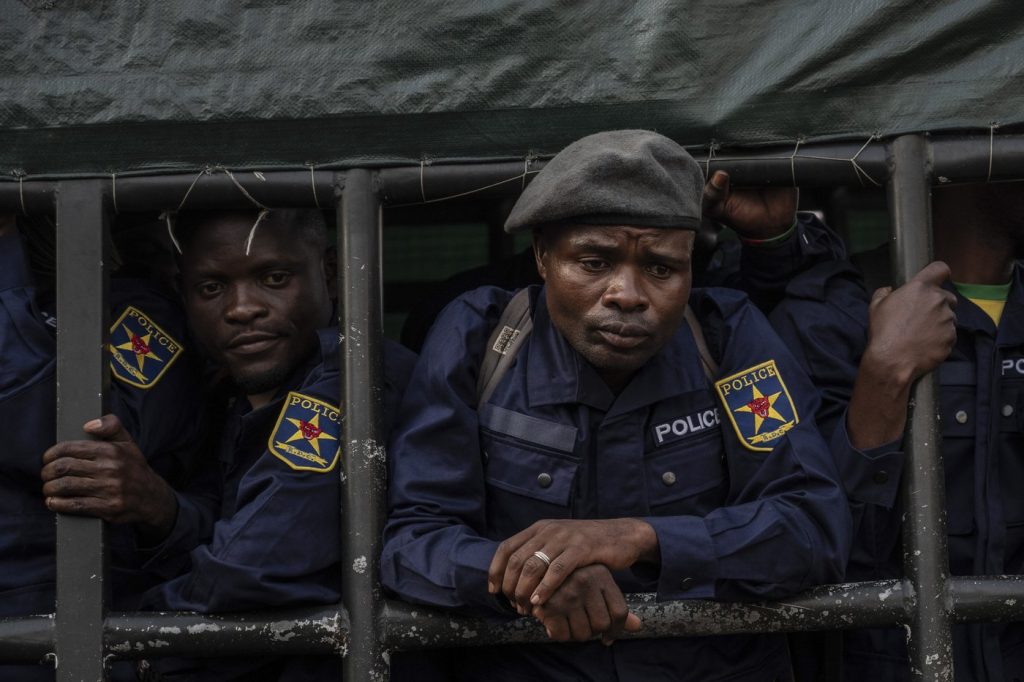DAKAR, Senegal (AP) — A declaration of principles for a permanent ceasefire has been signed by Congo and Rwanda-backed rebels in eastern Congo, amidst escalating ethnic tensions and a fierce competition for the region's rich mineral resources. This signing is part of one of Africa's most enduring conflicts, which has led to the deaths of thousands this year alone.
The event took place on Saturday and was facilitated by Qatar, which the African Union has labeled a "major milestone" in ongoing peace efforts. Qatari officials stated that this agreement lays the groundwork for a "comprehensive peace that addresses the deep-rooted causes of the conflict" affecting the Central African nation.
The roots of this conflict extend back to the aftermath of the Rwandan genocide of 1994, during which Hutu militias killed nearly 1 million Tutsis and moderate Hutus. Following this tragic event, Tutsi-led rebels took control, leading nearly 2 million Hutus to flee to neighboring Congo. Rwandan authorities have consistently accused the Kinshasa government of providing refuge to those responsible for the genocide, asserting that remaining Hutu fighters in eastern Congo pose a threat to Rwanda's Tutsi population.
Since the genocide, the Democratic Republic of the Congo (DRC) has been engulfed in conflict, with an estimated 6 million lives lost to warfare, famine, and unchecked disease. Analysts argue that competition over the eastern Congo's untapped mineral wealth—estimated to be worth up to $24 trillion—fuels many of the interests in the ongoing conflict.
The Trump administration was keen on accessing these vital minerals, positioning the U.S. in direct competition with China, which has become a significant player in the region. Recent developments include a large-scale minerals exploration program that KoBold Metals, a U.S. mining company, announced in collaboration with the DRC.
Rwanda, while claiming its involvement protects its national security, also seeks control over the region's mineral resources. A December report from a team of U.N. experts indicated that Rwanda benefits from minerals that are "fraudulently" exported from areas controlled by the M23 rebels, a claim that Rwanda has denied.
Despite the M23's assertions of independence from Rwandan influence, substantial evidence suggests that the group relies heavily on support from Kigali, with reports estimating that as many as 4,000 Rwandan troops are present in eastern Congo.
Justice remains a critical concern in this conflict. The U.N. and various human rights organizations have accused both sides of committing serious atrocities, including summary executions of children, widespread sexual violence, and forced disappearances in areas controlled by rebels. Community members, such as Goma resident Amani Muisa, have emphasized the urgency of justice and reparations as essential components of any peacebuilding process.
The signing of the declaration is regarded as the first formal commitment from both sides following a recent military escalation where rebels, with Rwandan support, seized strategic locations in eastern Congo. This agreement initiates negotiations for a final peace deal, which is expected to be concluded by August 18. Additionally, it reflects agreements made in a U.S.-brokered peace deal signed between Congo and Rwanda on June 27.
However, just days after the Qatar-spurred signing, discrepancies emerged in the interpretation of a crucial provision regarding whether the rebels would withdraw from the territories they seized, highlighting persistent challenges in establishing lasting peace in the region.











